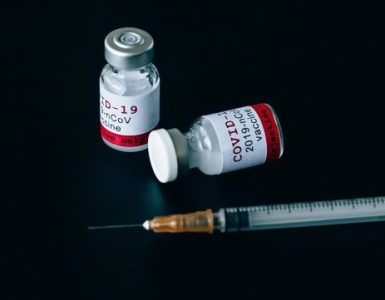 About a year ago, before the Zika virus grabbed global attention, there were zero vaccines for it in development. Today, according to the World Health Organization, there are 30.
About a year ago, before the Zika virus grabbed global attention, there were zero vaccines for it in development. Today, according to the World Health Organization, there are 30.
Some of the work has been astonishingly quick. Human trials for two experimental vaccines have already begun.
But a vaccine is likely still several years off, and there are indications the wait could be lengthened by a complication that has little to do with the science of vaccine development: The world’s top-tier pharmaceutical companies are largely hanging back, reluctant to get into the race for a vaccine.
Of the vaccines under development, only two projects involve major manufacturers, and in one of those cases — a partnership between GlaxoSmithKline and the National Institute of Allergy and Infectious Diseases — the approach planned is new, untested, and not likely to race to market.
The bulk of the work is being done by US and Brazilian government research teams and smaller biotech companies. That matters: Small biotechs generally lack the money and expertise to take an experimental vaccine from the idea stage to a licensed-for-use product.
For now, vaccine development seems like a risky venture for manufacturers that have recently taken part in a string of emerging diseases rodeos, from SARS and Ebola to the West Nile virus and the 2009 H1N1 pandemic. Those efforts have required significant investments on the part of major pharmaceutical companies, and have yielded either modest or no financial return.
“A lot of companies, including our own, have invested a lot of money to bring vaccines forward just to find those epidemics petering out,” Dr. Jon Heinrichs, who is leading a Zika project for Sanofi Pasteur, told STAT.
When the 2009 flu pandemic proved to be milder than feared, a number of countries refused to buy all the vaccine they ordered. Multiple companies raced to make an Ebola vaccine in 2014 but by the time most of the prospects were ready to be tested, the outbreak had been brought under control.
Dr. Rip Ballou, who heads the US research and development center for GSK Global Vaccines, is blunt about the burden that has been placed on vaccine manufacturers.
“As a consequence of our experiences with pandemic flu, with Ebola, at the very top of our organization a decision was made: We cannot continue to do business like this in the future. It’s too disruptive. There has to be a better way of doing it,” Ballou said.
Uncertainty over US government funding for Zika is also making it harder to entice the big companies to pursue a vaccine, said Rick Bright, director for influenza and emerging infectious diseases for the Department of Health and Human Services’s Biomedical Advanced Research and Development Authority.
Congress recessed for the summer without approving emergency funds requested by the Obama administration in late February.
Government agencies like the Centers for Disease Control and Prevention, the NIH, and BARDA have been using money borrowed from Ebola response coffers. But it is running out.
BARDA, as its known, works to spurs development of vaccines, drugs, and tests needed to respond to or prepare for emergencies.
“I can honestly tell you that it’s very difficult on our part to keep some of these players engaged without a firm commitment from the government to help support the development of the [Zika] vaccines,” Bright said.
“Some of the companies are really already beginning to turn back internally and say, ‘Well, I have another blockbuster drug over here maybe I should focus on. Maybe this isn’t an opportunity for us to help right now.’”
Because vaccine projects often don’t pan out, BARDA favors a multiple shots-on-goal approach. But where the authority would normally make investments in six vaccines for a new disease threat, for Zika it only has the cash for three.
“As things stand now, we’re going to be out of money at the end of August,” Bright said.
The sheer unpredictability of Zika is another huge hurdle for vaccine development. Here, too, the past weighs heavily on the minds of pharmaceutical executives.
The NIH and Sanofi Pasteur collaborated on a West Nile virus vaccine in the early 2000s. But public concern tapered off and with it went the market potential of the vaccine.
Experts feel demand for a Zika vaccine will remain strong, because of the fact the virus can trigger devastating birth defects when a fetus is infected in the womb.
But what they don’t know is how long the outbreak in the Americas will last, and whether it will spread to Africa and Asia. Those two continents have had some Zika transmission in the past, but it’s not known if most people grow up having been infected — and protected — or if large numbers of people there are also vulnerable to the virus.
A recently published modeling study projected that at the rate at which Zika is infecting people, the outbreak could burn itself out in another year or two.
Source: STAT

















